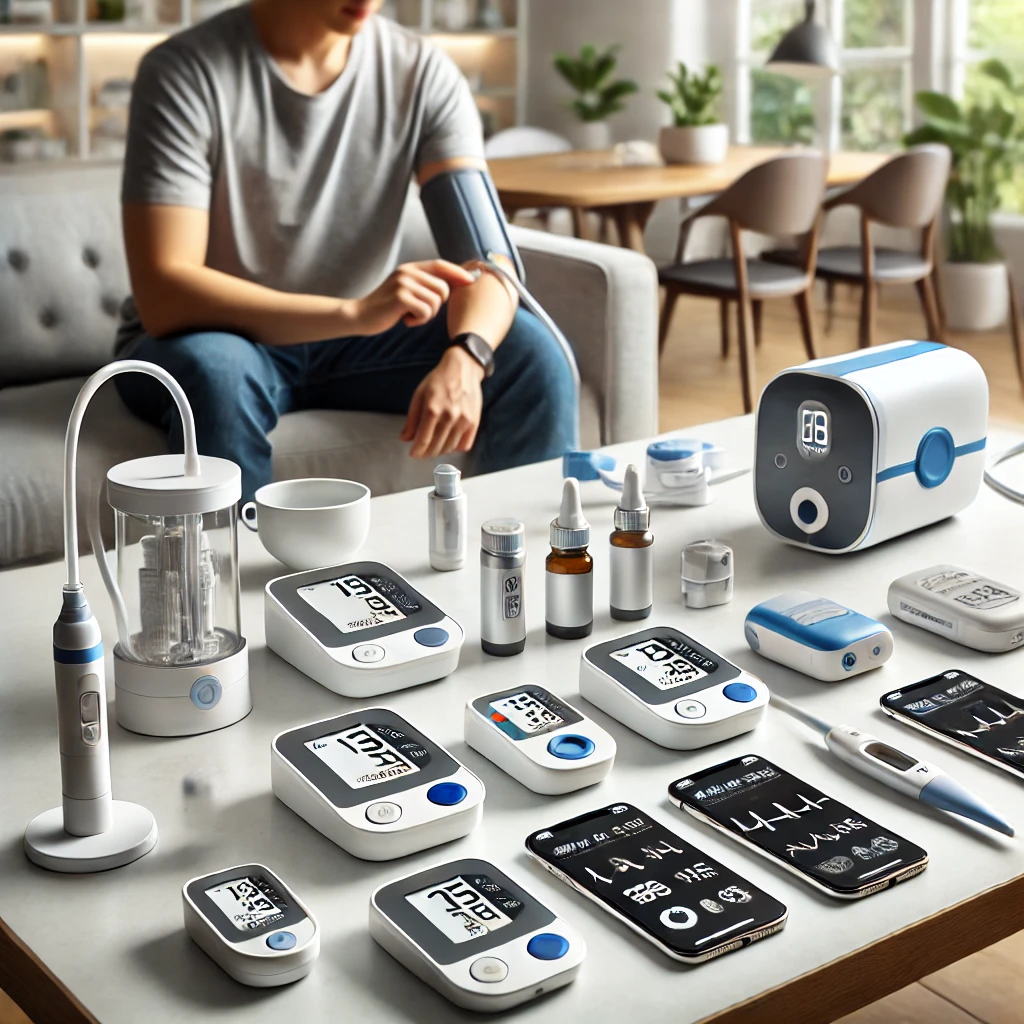

How to Select Great Medical Devices for Homes
The demand for home medical devices has significantly increased in recent years. With advancements in technology and a growing awareness of health management, people now have access to a wide range of medical devices that can be used at home. However, selecting the right medical devices for home use can be challenging, especially for individuals who may not have medical expertise. This guide aims to simplify the process by outlining essential factors to consider when choosing high-quality and effective home medical devices.
Understanding Your Needs
Before purchasing any medical device, it is crucial to identify your specific healthcare needs. Are you managing a chronic condition, monitoring vital signs, or seeking preventive healthcare? Different medical devices cater to different needs, and selecting the wrong one could lead to inefficiencies or inaccurate results. Some common home medical devices include:
- Blood Pressure Monitors – Ideal for individuals managing hypertension.
- Glucometers – Essential for diabetic patients to monitor blood sugar levels.
- Pulse Oximeters – Useful for individuals with respiratory conditions to measure oxygen levels.
- Thermometers – A necessity for monitoring body temperature.
- Nebulizers – Important for people with asthma or chronic lung conditions.
- Digital Weighing Scales – Helps in tracking weight, especially for those managing obesity or underweight conditions.
- ECG Monitors – Beneficial for individuals with heart conditions to track heart rhythms.
Researching Brands and Reliability
Not all medical devices are created equal. It is important to choose devices from reputable brands known for quality and accuracy. Consider the following when researching brands:
- Certifications and Approvals – Look for certifications from regulatory bodies such as the FDA, CE, or ISO. These approvals indicate compliance with safety and performance standards.
- User Reviews and Ratings – Checking customer feedback and expert reviews can provide insights into real-world performance and reliability.
- Clinical Validation – Some medical devices undergo clinical trials to validate their accuracy. Devices with clinical validation are more trustworthy.
- Warranty and Customer Support – A good warranty and responsive customer support can provide added peace of mind.
Accuracy and Performance
One of the most critical aspects of a medical device is its accuracy. A device that provides incorrect readings can be dangerous, leading to mismanagement of health conditions. Here’s how to ensure accuracy:
- Compare with Professional Readings – If possible, cross-check device readings with those taken by healthcare professionals.
- Regular Calibration – Some devices require periodic calibration to maintain accuracy.
- Consistency in Readings – A good device should provide consistent results when used under similar conditions.
Ease of Use and Comfort
Since home medical devices are often used by individuals without medical training, they should be user-friendly. Consider the following:
- Clear Display and Readability – Devices with large screens and clear numbers are easier to read.
- Simple Operation – Devices with one-touch operations or voice guidance can be more convenient.
- Portability and Storage – If you travel frequently, a compact and lightweight device is ideal.
- Comfort – Blood pressure cuffs, finger pulse oximeters, and similar devices should be designed for comfort to encourage regular use.
Connectivity and Smart Features
Many modern medical devices come with advanced features such as Bluetooth connectivity, app synchronization, and cloud storage. These features offer several advantages:
- Data Tracking and Analysis – Smart devices store historical data, allowing users to track trends over time.
- Remote Monitoring – Some devices enable healthcare providers or family members to monitor health metrics remotely.
- Integration with Other Health Apps – Many smart devices sync with health apps like Apple Health, Google Fit, or MyFitnessPal.
- Alerts and Reminders – Some devices provide reminders for medication, tests, or follow-ups.
Maintenance and Durability
A high-quality medical device should be durable and easy to maintain. Consider the following maintenance aspects:
- Battery Life and Charging Options – Check whether the device uses rechargeable or disposable batteries and how long they last.
- Cleaning and Hygiene – Devices that come in contact with the body should be easy to clean and disinfect.
- Replacement Parts – Some devices require periodic replacement of parts (e.g., test strips for glucometers, filters for nebulizers). Ensure these are readily available and affordable.
Cost and Value for Money
While price is an important factor, the cheapest option is not always the best. Consider:
- Long-Term Costs – Some devices have ongoing costs for consumables like test strips, electrodes, or batteries.
- Feature vs. Price Balance – More expensive devices may offer additional features, but ensure they are necessary for your needs.
- Insurance and Reimbursement – Some insurance plans cover home medical devices. Check with your provider to see if reimbursement is possible.
Consulting a Healthcare Professional
Before purchasing a medical device, it is always advisable to consult a doctor or healthcare professional. They can provide recommendations based on your medical history and specific needs. Additionally, some devices require prescriptions, so it is best to check with a professional before making a purchase.
Conclusion
Selecting the right medical devices for home use requires careful consideration of factors such as accuracy, ease of use, reliability, and maintenance. Investing in high-quality medical devices can significantly improve health monitoring and management at home. By understanding your needs, researching brands, considering smart features, and consulting healthcare professionals, you can make informed decisions that enhance your well-being and provide peace of mind. With the right tools, managing health conditions at home can be both effective and convenient.
Add a comment Cancel reply
Related posts


Regulatory Compliance for Refurbished Medical Devices

New vs. Refurbished Medical Devices: Making the Decision

Refurbished Surgical Instruments from Japan: Precision, Quality, and Value
Japan Address
COMFYS JAPAN LLC, R Cube Aoyama 3rd Floor, 1-3-1 Kita-Aoyama, Minato-ku, Tokyo 107-0061,Japan
Africa Address
Comfys International Limited KP Offices, Suite 26 Milimani, Nairobi, KENYA




